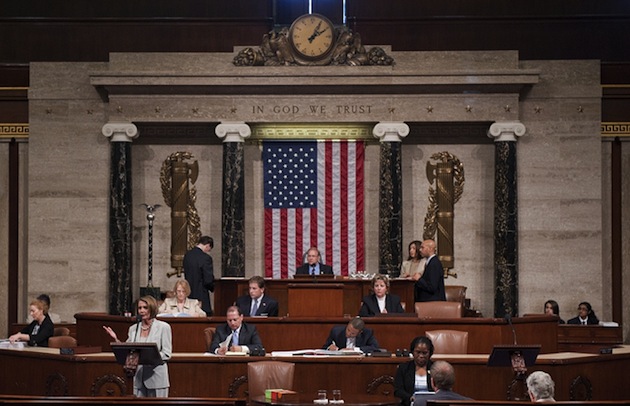
PRISM enables the NSA to categorically violate your right to privacy and reach far beyond the boundaries typically enforced by courts. So why aren’t the politicians furious about this?
They instead seem to be focused on Edward Snowden. Since his leak of the PowerPoint slides detailing the NSA’s surveillance program, politicians from both parties -- including the liberal Nancy Pelosi and Republican House Speaker John Boehner -- have called his arrest.
Nearly half of all Americans, according to Pew, say Snowden’s leaks "served the public interest", and almost two-thirds say they would feel "violated" if they knew the government was collecting their personal information. Even so, politicians do almost nothing to hold the NSA accountable. Why don’t the politicians care?
It very well could be due to the fact that they don’t understand the real implications of PRISM on the right to privacy.
Politicians Have an "In"
Politicians are insiders by nature. No matter how much a politician acts as if they are a part of their constituency, a politician has privileges and benefits that typical citizens do not. The very nature of a politician separates them in almost every way. If you compare the demographics of the typical politician to their constituency, it is clear that politicians make more money than a majority of those whom they represent.
The NSA has a vested interest in pleasing politicians. Members of Congress choose how much money the NSA gets in its budget every year. The NSA needs to present a value -- not a hindrance -- to Congress’s view of government operations in order to maintain its funding.
It’s trustee politics at its finest.
Another point: politicians have no reason to be afraid of the fact that the NSA are monitoring their activity because politicians already have the media and investigative journalists looking into every aspect of their lives anyway. And while life isn’t like an episode of House of Cards, a politician doesn’t have much privacy in the first place. The NSA looking at their internet, phone, and credit card activity doesn’t really affect them that much.
PRISM is Constitutionally Questionable
Spying on citizens is an affront to right to privacy guaranteed in the Bill of Rights, and by several supreme court cases (Mapp v. Ohio for one). But in a repeat of the past, the support for PRISM does not follow the constitutional precedent but rather follows the trend towards fighting terrorism no matter what the cost.
Just like the Cold War’s anti-Communist movement, politicians are reactionary in response to the few key events that forever linger on our minds as some of the worst days the country has seen: 9/11 and most recently the Boston Bombing. As such politicians use any means necessary to stay re-elected including taking any chance they have to show they are tough on terrorism. Bush did it in 2004 (see this Stanford study for details).
Politicians are taking the same road that Bush and McCarthy followers did to get re-elected -- a road of False Patriotism rather than a road of false understanding paved with a lack of empathy to those who have been violated by the program.
Quinn Winters works for an education startup in San Francisco that provides online tutoring for high school and college students. He is active follower of politics and law enthusiast. He plans to eventually become an attorney for public interest or potentially a politician. You can find him on Google+ or follow him on Twitter @quinn_winters.
This article originally appeared on TechPolitik.

